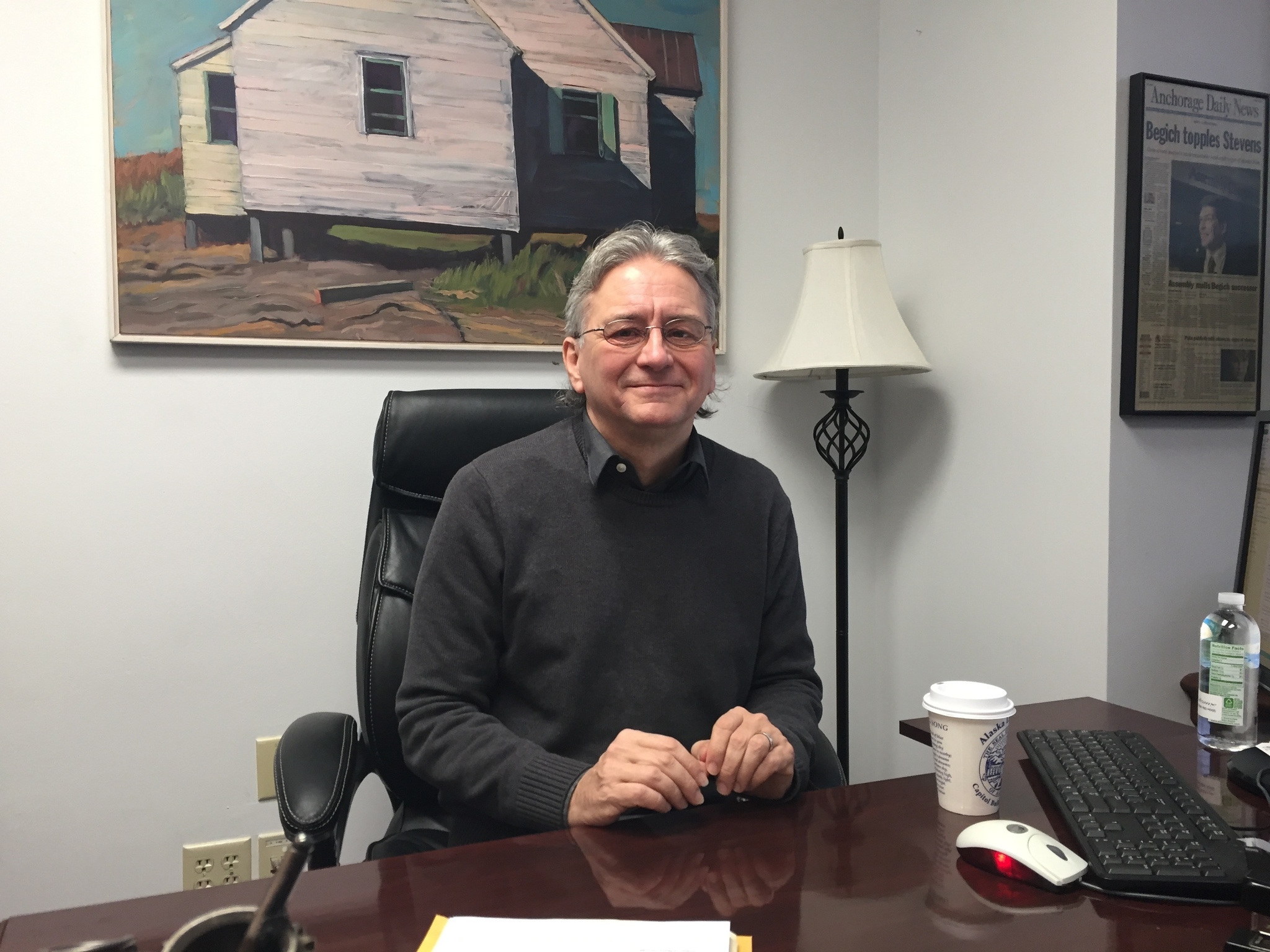JUNEAU — Legislators on opposite ends of the political spectrum are supporting an Alaska Senate bill to restore the portion of Alaskans’ oil wealth checks cut by Gov. Bill Walker last year.
Walker vetoed about half the amount available for checks after legislative sessions that focused on the state’s multibillion-dollar deficit ended in gridlock.
Senators who want the rest of the checks restored disagree with Walker’s veto but they also have different ideas on what a fiscal plan should include.
Signing on as co-sponsors to Republican Sen. Mike Dunleavy’s bill are conservative Republicans Cathy Giessel, David Wilson and Shelley Hughes and Anchorage Democrats Bill Wielechowski and Tom Begich. The bill is scheduled for an initial hearing on Tuesday.
It remains to be seen if the bill gains traction. Walker spokeswoman Katie Marquette said by email Monday that Walker stands by his veto decision, and there are legislators uninterested in rehashing that fight.
But the debate over using Alaska oil-wealth fund earnings to help pay for government amid slumping oil revenue and tinkering with residents’ yearly checks isn’t going away. Indeed, Walker and a number of legislators see no way around the use of Alaska Permanent Fund earnings to help pull the state out of the hole. How that might be done, though, and what it might mean for the permanent fund dividend remains an open issue.
While the fund’s principal is constitutionally protected, its earnings, from which dividends are derived, can be spent, if lawmakers choose. The amount allocated to dividends is based on a rolling average of the fund’s performance.
Dunleavy said that over the years, Alaskans haven’t quibbled much with the size of their check fluctuating based upon that formula. “But the moment government puts its fingers into the mix, people get upset,” he said.
Giessel, an Anchorage Republican, last year voted for Walker’s bill to change the dividend calculation and to draw money from earnings based on a percentage of the fund’s market value. The bill, which would have capped dividends at $1,000 a year for three years, passed the Senate but died in the House.
In a Senate floor speech Friday, Giessel said she still supports the concept of that bill, noting that fund earnings were meant as a rainy-day fund. But she took exception to Walker slashing the dividend unilaterally.
“To not restore the money taken by the governor, without our consent, is in my mind to give in to a power grab,” the Anchorage Republican said, adding it will hurt lawmakers’ ability to build trust with the public in weighing other huge decisions.
Legislators failed to muster sufficient support for a joint session last year to consider overriding the dividend cut or other Walker vetoes.
Wielechowski and two former lawmakers sued over the veto, but a Superior Court judge ruled Walker acted within his authority. Wielechowski is appealing the decision.
Wilson, of Wasilla, and Begich, both freshmen legislators, worry about the precedent of Walker’s veto. Begich said he was concerned, too, about average Alaskans, already feeling the effects of state budget cuts, shouldering too heavy a load.
He sees the intent of Dunleavy’s bill as starting discussions about a fiscal plan anew. If that’s the case, the Republican-led majority needs to come up with a comprehensive budget plan, he said.
Senate President Pete Kelly has said the majority plans to evaluate the use of permanent fund earnings but won’t act on that issue until there is a spending limit in place and proven budget reductions.
Begich said to consider any cuts, lawmakers also must consider oil tax and tax credit policies.

